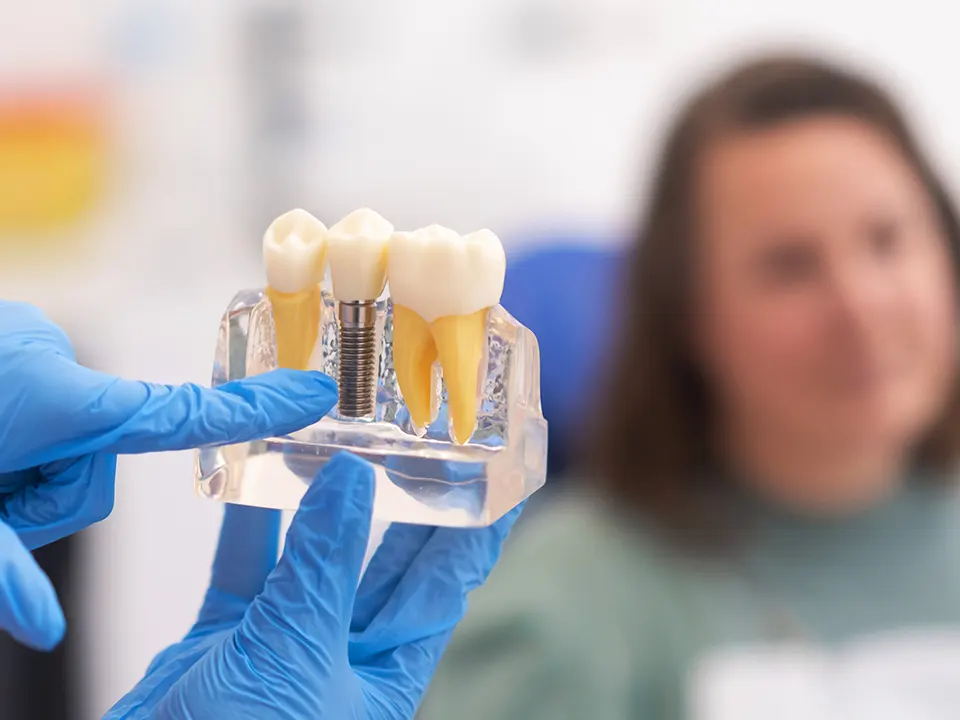
Emergency Dentist Guide: What to Do in a Dental Emergency
December 19, 2024
Understanding Why Your Teeth Feel Sensitive: Causes and Solutions
February 11, 2025Choosing the best toothpaste is an essential step in taking care of your teeth. With so many options on the market, it can be overwhelming to figure out which one is right for your specific oral health needs. Depending on if you’re dealing with sensitive teeth, gum issues, or caring for your child’s teeth, the right toothpaste can make a significant impact. In this guide, we will outline what to look for in toothpaste for different needs.
Things to Check For
When shopping for toothpaste, there are a few key things you should keep in mind.
Key Ingredients
First, always check the ingredients. Fluoride is the gold standard for cavity prevention, so you’ll want to make sure it’s included in the toothpaste you choose. Fluoride helps remineralize enamel and prevent tooth decay in your teeth. If you have specific needs, look for other ingredients like desensitizing agents (potassium nitrate or strontium chloride for sensitive teeth) or baking soda in a whitening toothpaste.
ADA Seal of Approval
Look for the American Dental Association (ADA) seal of acceptance or the Canadian Dental Association(CDA) seal of approval. This certification ensures the product is both safe and effective. When you see this seal, you know that the toothpaste has met rigorous standards for both safety and performance. This can help narrow down your options to reliable choices.
Flavour and Texture Preferences
Personal preferences matter, too. Toothpaste comes in different flavours and textures, so choose one that feels good in your mouth and helps you brush regularly. Whether you prefer a minty, refreshing flavour or something milder, a flavour you enjoy can make a difference in maintaining your brushing routine.
Natural Toothpaste
If you prefer a more natural approach to oral care, there are plenty of toothpaste made without synthetic ingredients. Natural toothpaste often excludes artificial flavours, dyes, and sodium lauryl sulfate (SLS) while incorporating ingredients like xylitol for cavity prevention and essential oils for freshness. Keep in mind that not all natural toothpastes contain fluoride, so check the label if cavity prevention is a priority.
Suitability for Specific Needs
Lastly, think about what your oral health needs are. Do you need toothpaste for sensitive teeth or gum health? Are you looking for whitening options or something more natural? Identifying your concerns will help narrow down your choices and find a product that best suits your needs.
Sensitive Teeth
If you have sensitive teeth, choosing a toothpaste is crucial for managing discomfort. Sensitive teeth are typically caused by worn enamel or gum recession, which exposes the nerve endings in your teeth. To reduce sensitivity, you’ll want a toothpaste that contains desensitizing agents like potassium nitrate or strontium chloride. These ingredients help block the nerve signals that cause pain.
Avoid highly abrasive toothpastes, as they can further wear down enamel and make sensitivity worse. Instead, opt for gentle formulas that are specifically designed for sensitive teeth. These toothpastes work by gradually soothing and protecting your teeth, so you don’t have to worry about sharp, painful reactions to hot or cold foods.
Additionally, for sensitive teeth, you could also consider natural toothpaste that is SLS-free. That substance creates the foaming effect that the majority of toothpastes have. However, it can irritate those with sensitive teeth.

Gum Health
Your gums play an equally vital role as your teeth, and keeping them healthy should be a priority. Gum disease can lead to tooth loss if left untreated, so maintaining gum health is key. Choose a toothpaste that contains antibacterial agents like triclosan or stannous fluoride. These ingredients help fight plaque buildup and reduce inflammation in the gums, preventing gingivitis and more serious gum issues.
Regular brushing with toothpaste that promotes gum health will keep your gums strong and prevent the buildup of harmful bacteria. If you’re already dealing with gum problems, consider a toothpaste specifically formulated for gum care to target and reduce inflammation.
Whitening Teeth
If you’re looking to brighten your smile, whitening toothpaste can be an effective option. These toothpastes typically contain mild abrasives, like hydrated silica, to gently remove surface stains caused by coffee, tea, or other foods. Some toothpaste may also include peroxide for additional whitening power. However, it’s important to use these products with care. Overuse of whitening toothpaste can result in enamel erosion or increased sensitivity. Look for a formula that’s gentle and ADA-approved to ensure it’s safe for daily use. For more dramatic whitening results, consider speaking with your dentist about professional whitening options.
Bad Breath
If bad breath is a concern, choosing the right toothpaste can help you stay confident throughout the day. Look for toothpaste with antibacterial ingredients like zinc or chlorhexidine, which work to neutralize the bacteria responsible for halitosis. Some formulas also include odour-fighting agents and refreshing flavours like peppermint or spearmint for an instant boost of freshness. Consistent use, along with proper oral hygiene, can significantly reduce bad breath and leave your mouth feeling clean and refreshed.
Children
When choosing toothpaste for kids, safety and fluoride content are the top priorities. For children under the age of 2, opt for fluoride-free toothpaste, as they are more likely to swallow it. Once they reach the age of 2, you can start using fluoride toothpaste, but ensure that you only use a small pea-sized amount to avoid overuse. Fluoride helps strengthen enamel and protect teeth from cavities, but too much fluoride can lead to fluorosis, which leads to spots on teeth.
Kid-friendly toothpaste often comes in fun flavours like bubblegum or strawberry, which makes brushing more enjoyable for little ones. Some also have a milder formula to reduce the chances of irritation in sensitive mouths. Always choose toothpaste with the ADA or CDA seal to ensure it’s safe for your child.
Dentures
Caring for dentures requires a bit more attention than regular teeth, as dentures are more delicate and can be scratched easily. The best toothpaste for dentures is one that’s non-abrasive. Toothpaste with harsh abrasives can damage the surface of dentures, leading to scratches where food particles and bacteria can get trapped.
Look for denture cleaners that are specifically designed to clean without damaging the material. These toothpaste formulas often focus on surface stain removal and odour control, keeping your dentures fresh and looking great. Regularly cleaning your dentures with the right toothpaste will help prevent bacteria buildup and keep them in top condition.
Braces
Braces require extra care for brushing. The brackets and wires can trap food particles and plaque, making it more difficult to maintain oral hygiene. When choosing toothpaste for braces, make sure it contains fluoride to help prevent cavities in those hard-to-reach places. Some toothpaste also includes ingredients that help fight plaque buildup around the brackets, which is especially important for people with braces who are at higher risk for plaque accumulation.
Avoiding overly abrasive toothpaste is important, as these can wear down the enamel around the braces. Instead, choose a toothpaste with a gentle formula that can clean effectively without causing damage. You’ll also want to consider a toothpaste that can fight bad breath, as braces can sometimes lead to a buildup of odour-causing bacteria.
Choosing the Right Toothpaste
Finding the best toothpaste for your oral health needs doesn’t have to be complicated. By considering factors like your specific oral health concerns, the ingredients in the toothpaste, and any personal preferences, you can find the right product for your needs. Consult your dentist if you’re unsure which toothpaste is best for you. They can offer personalized expert recommendations based on your unique oral health needs.
For more information or personalized recommendations, contact us today. We’re ready to support your oral health!



